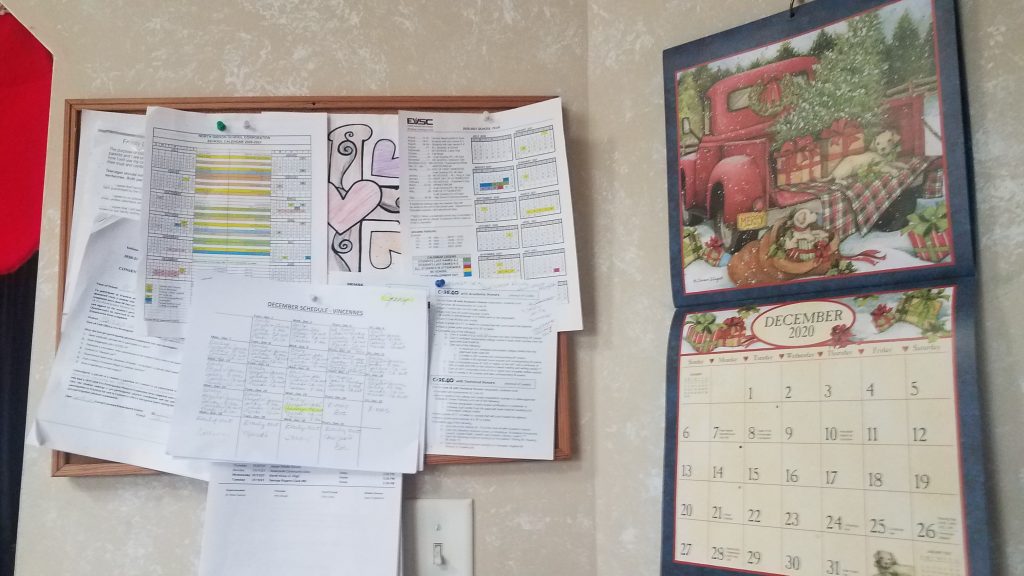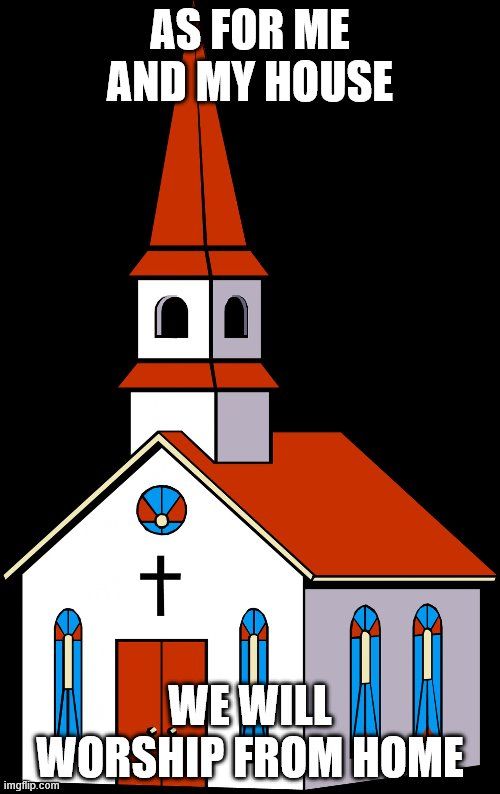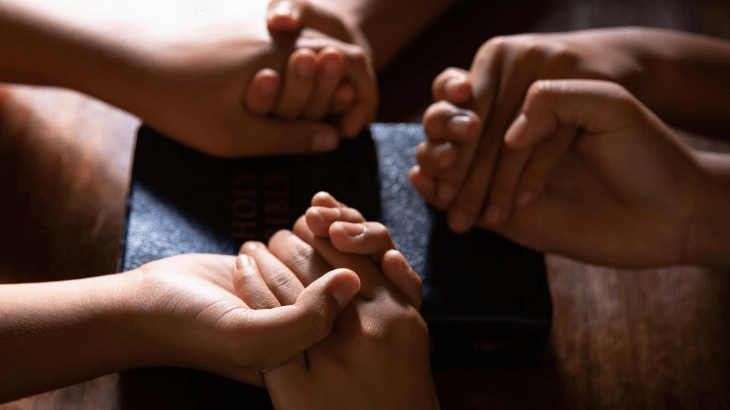I am a podcast junkie. If you open the podcast app on my phone at any given time, you’ll typically find 5-10 podcasts in the queue ranging from current events to politics to self-care to church sermons. I’ve learned so much from the hours spent with various voices while on the road or in the kitchen or on the treadmill, and today was especially eye-opening. Bridgetown Church in Portland, Oregon began releasing a daily teaching at the beginning of the COVID-19 pandemic and while I’ve only come across them recently, they have been a grounding piece of my daily spiritual disciplines.
Today’s podcast is titled “The Wilderness” and features Bethany Allen, Bridgetown’s Pastor of Spiritual Formation and Leadership Development. In it she explores Matthew 4:1-11 when Jesus is led by the Spirit into the wilderness in preparation for his earthly ministry. Verses 2-4 say, “After fasting forty days and forty nights, he was hungry. The tempter came to him and said, ‘If you are the Son of God, tell these stones to become bread. Jesus answered, ‘It is written: Man does not live on bread alone, but on every word that comes from the mouth of God.’” In the remainder of the well-known story, Satan continues to tempt Jesus and Jesus continues to refuse temptation by relying on God’s word. In this battle of good versus evil, good wins.
Allen points out that we often read this scripture with a sympathetic view of Jesus. We assume that he’s at his most vulnerable and weak point and we can only imagine that he’s able to withstand the enemy because he is in fact God. But Allen argues that perhaps our perspective is inaccurate. What if we recognize that Jesus’ time of isolation and fasting in the wilderness actually developed in him the spiritual fortitude that is available to all of us when we are in step with God?
Allen asks the question, “What if we saw the wilderness as a place of fortification instead of desolation?” I don’t know about you, but I’ve been prone to decry the wilderness seasons of my life because they were so painful. Allen says “we have viewed the wilderness as a rite of passage, the place where we suffer or white-knuckle it, even endure the absence of God’s presence.” But what if that’s not what it’s about at all? In retrospect I see how my wilderness seasons are often the times I feel closest to God. Those are the times, the times when I am most dependent on God, that I grow most profoundly in relationship with him. In my times of thinking God was absent, he most clearly assured me of his presence. And if that’s the case, should we be so quick to run away from those seasons?
Matthew 4:1-11 is a significant text for the Lenten season, the 40 days beginning on Ash Wednesday and ending on Easter Sunday when we remember Jesus’ temptation in the wilderness. Lent is an opportunity for us to willingly enter the wilderness with Jesus. In the past, I’ve viewed the sacrifice made in Lent as a means of suffering and I engaged willingly because I wanted to experience – albeit on a very minute level – the suffering of Jesus. It felt like the “good Christian” thing to do. And at the end of the 40 days I was grateful to end the fast, often with no permanent change in my habits or my spiritual life. But Bethany Allen’s teaching has given me a new perspective, one of hopeful expectation that when I enter into the wilderness of Lent, I can expect that God WILL show up and in that, I have an opportunity to experience his strength and power in new and profound ways. And you better believe I’ll be watching for it and documenting it.
I don’t know what your experience has been like with Lent in the past, but I invite you to observe it this year. I invite you to examine how you spend your time and energy, both mental and physical. I invite you to let go of a barrier that prevents you from daily encounters with God and to watch with hopeful expectation for the ways he will meet you in your fasting. If you want to extend this to your family as well, I invite you to check out the ‘Observing Lent with Children’ page on our Hillside UMC website. How often do we help our children experience God beyond participating in Sunday worship? Maybe the season of Lent will be the start of a new daily rhythm for your family.
Can you imagine how God will move when your family as a whole makes room in the daily rhythm to meet with him? I hope you’ll watch for it, document it, and share it. And if you want to check out Bethany Allen’s teaching, simply click the ‘play’ button below and enjoy.










 As I sit down to write this, it is November 25th, the day before Thanksgiving 2020. My oldest child is finally released from a close-contact quarantine and eager to leave the house. My youngest is eager to make her famous chocolate cake for tomorrow’s community Thanksgiving meal. It will be a fun day of togetherness and delicious smells from the kitchen but it’s nothing like past Thanksgivings when extended family crowded into the kitchen, turkey smoked on the Big Green Egg, and we never considered wearing masks for the quick trip to the IGA to pick up last-minute ingredients.
As I sit down to write this, it is November 25th, the day before Thanksgiving 2020. My oldest child is finally released from a close-contact quarantine and eager to leave the house. My youngest is eager to make her famous chocolate cake for tomorrow’s community Thanksgiving meal. It will be a fun day of togetherness and delicious smells from the kitchen but it’s nothing like past Thanksgivings when extended family crowded into the kitchen, turkey smoked on the Big Green Egg, and we never considered wearing masks for the quick trip to the IGA to pick up last-minute ingredients.